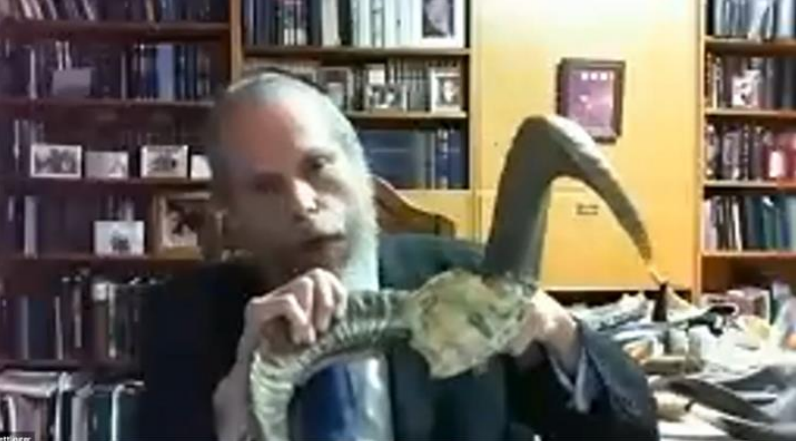(Photo credit: KAJN)
I don’t want to belabor writing about our Minhagim. But the most unusual nuance in our Tefllah cycle is – perhaps- the use of the tune for the Yomim Nora’im in the Kadish preceding the Amidah on the seven Shabasos between Tisha B’av and Rosh Hashanah.
This Minhag makes our Shul the earliest harbinger of the Yom HaDin.
The Baalei Mussar would famously tremble when announcing the Rosh Chodesh Elul. Sefardim begin the Selichos at Rosh Chodesh Elul itself. But all of these people are not in the High Holiday spirit until…Elul. This particular Minhag has a way of saying, “Do not pay attention to the free society around you that tells you how your summer is meant to be all fun and games! You have a higher calling!”
Of course, Tannersville did not close after Tisha B’av. But, the reminder is still built in to the summer. This message of the Bnei Aschkenaz being called to a higher calling- ahead or apart from others is echoed elsewhere in our lifestyle.
First of all, the very nature of Torah im Derech Eretz is a call to acquire a balance in a difficult milieu. While others may apply themselves to learning or pursuing a career, TIDE asks each of us to see the entire question of how and when to balance Torah and Derech Eretz as a system that requires always being engaged in both. So Derech Eretz is not secular, and learning is not done in spite of DE, but as a way to master it. You as a Gemran Jew cannot just follow everyone else. You carry a responsibility
I also think this spirit is found in some of the writings of our leaders z’l:
1) In Rav Breuer’s essay “A Message to a Growing Youth”: (We were given this essay to read in high school when we made trouble.) Rav Breuer zt’l has one line there. A real zinger. “When a friend comes over to you and makes a vulgar comment…you will turn away in contempt…because he seeks to cheapen that which you and he should hold sacred.” You have to be BETTER.
2) In the essay “Trends in Our Kehillah”: Rav Breuer likewise tells the mispalelim that they need to be wary of blindly following other – trending- forms of Avoas Hashem. For instance, Shuckling. He point to the words of the Mishnah Berurah and reveals that standing still whie praying – as a humble servant- can lead to more concentration. And one shouldn’t assume that swaying is “better”.
Regarding weddings, he points out that every Tzibur keeps it Minhogim, and we shouldn’t assume that we need to eschew our own. (He includes our “minhag” to have the wedding start on time.)
3) Then there were times in my childhood when my father would always tell me to be better than the “them”. This includes all the times he had me sit next to him for the Rav’s speech when other kids went out. (I went out many times too- just not always.) And when I planned on coming late to a wedding – I would say, “No one comes on time!?” “So YOU will be the one who comes on time”.
You- hold yourself to a higher standard.
Then this backfired once. For years my parents begged me to get Semicha while I learn in Yeshivah. Like many parents, they saw this as a type of degree. Finally, I countered with an argument that I was sure would work: “Dad”, I said, “In Yeshivah, only the stupid guys go for Semichah”.
It didn’t work. Dad retorted, “So you be the stupid guy!”
Happy Summering!

Thank you, again, for the enlightening words
Two things
A. The word is Wary B. I beg to differ that our thoughts of Yomim Noroim begin with the Shabbos after Tisha b’Av.
They begin with the “Yahres Kaddish” on Simchas Torah.
We end our tefillos in these holy days of Tishri by invoking & reviewing the tefillos of the entire year
we display that our time closest to HKB”H is by far not over but will continue as we encourage the listener
to understand that the year is just beginning and our closeness to HKB”H is our display of gratitude for all
He has given us and will continue to shower us with through the course of the year.
The Shabbos following Tisha b’Av is merely an understanding and conviction of a moment in time.
We never, even for a moment, lose the notion that we perpetually stand before HKB”H in judgement
and hopefully forgiveness.
Many thanks for your words and writings over the years. Please continue.
Henry Lehmann
LikeLiked by 1 person
Fixed the spelling. Thanks for your words.
LikeLike